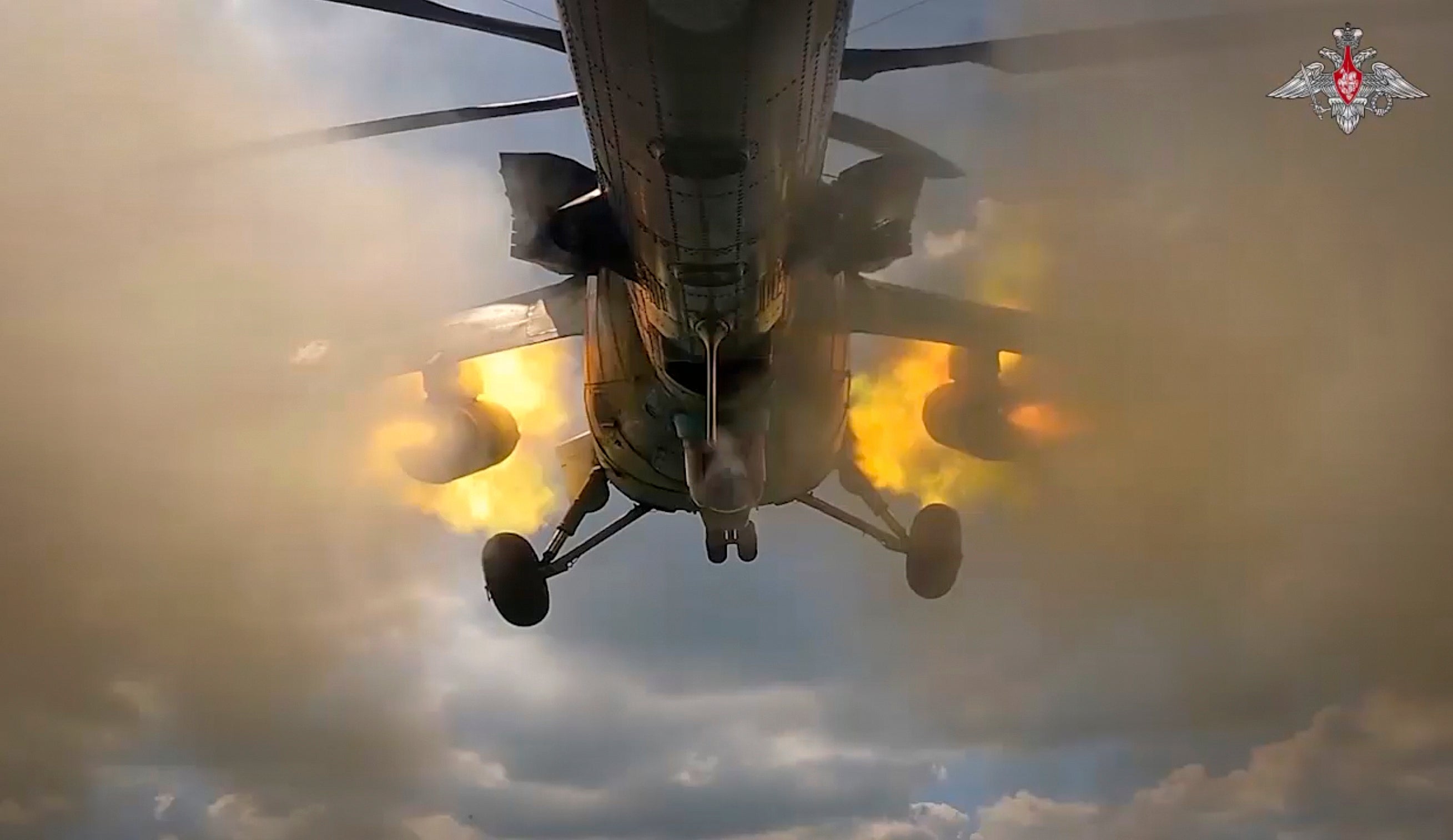Ukraine has launched the largest drone attack on Moscow since Vladimir Putin’s invasion – its latest attempt to bring the war to Russia as it continues an audacious cross-border incursion in Kursk.
For months, Ukraine has targeted Russian refineries and airfields with drone, but assaults on the capital – some 300 miles from the Ukrainian border – have been rarer.
One Russian dissident told The Independent that president Volodymyr Zelensky was seeking to land a “serious psychological blow to Russians.”
Moscow mayor Sergei Sobyanin accused Ukraine of carrying out “one of the largest attempts to attack Moscow using drones ever” in Wednesday morning’s move.
Russia’s defence ministry said its air systems destroyed a total of 45 drones over its territory, including 11 over the Moscow region, 23 over the border region of Bryansk, six over the Belgorod region, three over the Kaluga region and two over the Kursk region.
Sobyanin also claimed some of the drones were shot down just 24 miles south of the Kremlin.
“Ukraine is doing everything it can to shift the attention of Russian authorities from its own territory to the territory of the aggressor country,” said Yevgenia Chirikova, a Russian dissident and friend of Navalny who now helps support the pro-Ukrainian Russian militias in Ukraine.
“Such drone attacks have been increasing recently, and I believe their intensity will continue to grow.”
Emil Kastehelmi, an open-source intelligence analyst tracking the war in Ukraine for The Black Bird Group, added: “Ukraine is operating inside Russia. Now it makes the largest strike against Moscow of the whole war… [Ukraine] wants to show Russia that just as they are always showing Ukraine that they are not really safe anywhere… that the same applies in Russia.

“Even when it is Moscow, Ukraine can still strike there,” he said.
Russian media showed unverified footage of drones whirring through the dawn sky across the Moscow region before being shot down in a ball of flame. Moscow’s airports, Vnukovo, Domodedovo and Zhukovsky, restricted flights for four hours during the attacks.
The last time Ukraine fired such a number of drones at Moscow was in May 2023, when at least eight unmanned aerial vehicles (UAVs) were reportedly destroyed. At that time, Putin accused Ukraine of trying to scare and provoke Russia.
Sobyanin said there were no injuries or damage reported in the aftermath of the latest attacks, while Moscow residents spoke of the strength of the city’s air defences.
There were also no casualties or damage reported following the attack on Bryansk in Russia’s southwest, according to the governor of the region, Alexander Bogomaz.
Vasily Golubev, governor of the Rostov region, also claimed air defence forces successfully destroyed a Ukraine-launched missile in his area, with no injuries reported. But fires were seen on the ground as Ukraine claimed to have destroyed a S-300 anti-aircraft missile system there.
Kyiv’s special forces also published footage of a series of strikes on Russian bridges and makeshift pontoon bridges over the Seym River in Kursk, where Kyiv’s forces have carried out an incursion that has lasted more than two weeks.
They said they had used US-supplied High Mobility Artillery Rocket Systems (Himars) to strike the bridges. It was the first official statement from Kyiv that Western weapons were part of the unprecedented offensive. Anonymous sources confirmed to The Independent last week that British Challenger 2 tanks were used in the attack, while Mr Zelensky’s chief adviser Mykhailo Podolyak said the assault on Kursk was also part of a “psychological” tactic to force Putin to the negotiating table.

“[Russians] don’t discuss the war, and they generally feel quite comfortable because there is a war going on somewhere, someone is killing. It’s interesting for them to watch on TV,” he said. “But when the war proceeds into the territory of Russia, they are certainly scared. They are shocked. This has a significant impact on the psychological state of Russia. It is also a tool of influence.”
The bridges are vital to resupplying Russian forces between the river and the Ukrainian border, as well as providing a retreat route should Kyiv’s troops advance westward.
All three permanent bridges in the area, which forms the southern half of the Glushkovsky District, were damaged or destroyed over the weekend, on Friday, Saturday and then Sunday. Ukraine claimed responsibility for at least one of those strikes.
High-resolution satellite imagery released online also showed the extent of damage sustained by the third permanent bridge, near the village of Karyzh, after it was hit on Sunday.
Russian engineers recently began constructing makeshift pontoon bridges to reconnect supply lines from the north of the river, but satellite imagery showed the constructions disappearing a day or two later. Plumes of smoke were visible in several of the pictures, suggesting Ukraine may have destroyed the facilities, but Kyiv had declined to comment.
Ukraine’s special operations forces posted footage on Telegram of what it said was the destruction of several crossings and the engineering units responsible.

